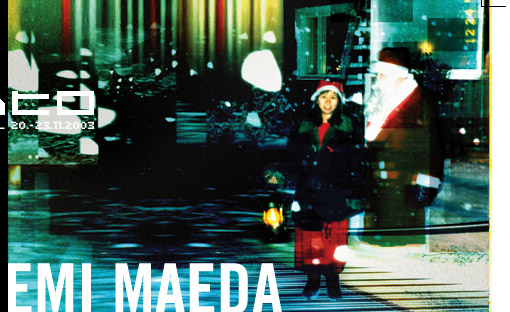


 |
A Tokyo-born harpist living in Helsinki, Emi Maeda has studied harp playing in Tokyo and London. She is currently dividing her time between her live performances and her post-graduate studies in contemporary music composed mainly for the harp at the Sibelius Academy in Helsinki. According to Emi herself, she is best characterized by the irreconcilable conflict between a classical and a maverick musician. You might be hard pushed to hear a connection between Maeda's rather aggressive computer compositions and the traditional harp music she plays. Emi emphasizes, nonetheless, that for herself, it's all about the same music. Even though she has played a wide variety of traditional harp pieces, she is now focusing on the rather limited but all the more demanding harp repertoire of the 20th century. The status of the harp in contemporary music is indisputably peripheral (not to mention in noise music – Ed.). Still, electronic sound manipulation techniques are just as easily applied to the harp, once initial prejudices are overcome. In some capacity or other, the harp is also involved in most of Maeda's computer-processed sound material, and the compositions themselves are always based on the harpist's angle. With her improvisational solo concerts she has also investigated the possibilities opening up for the harp and some other related instruments such as the kantele, its traditional Finnish counterpart. For Emi Maeda, the most important aspect of music is the communication between the musician and the audience. When the harp is merely filling its traditional decorative role, it cannot communicate; its signification for us has been exhausted, we no longer have access to the pastoral. The noise composed by Maeda, though, is not nihilistic aggression, but an open invitation to joyful ecstacy. Emi's performance at the Avanto Club is also about reaping the artistic harvest of the festival. It was at the Merzbow concert during the first Avanto in 2000 that she first woke up to the musical possibilities of noise. |
Emi Maeda will perform at the Avanto Club in Gloria on Saturday, November 22nd. Links: |